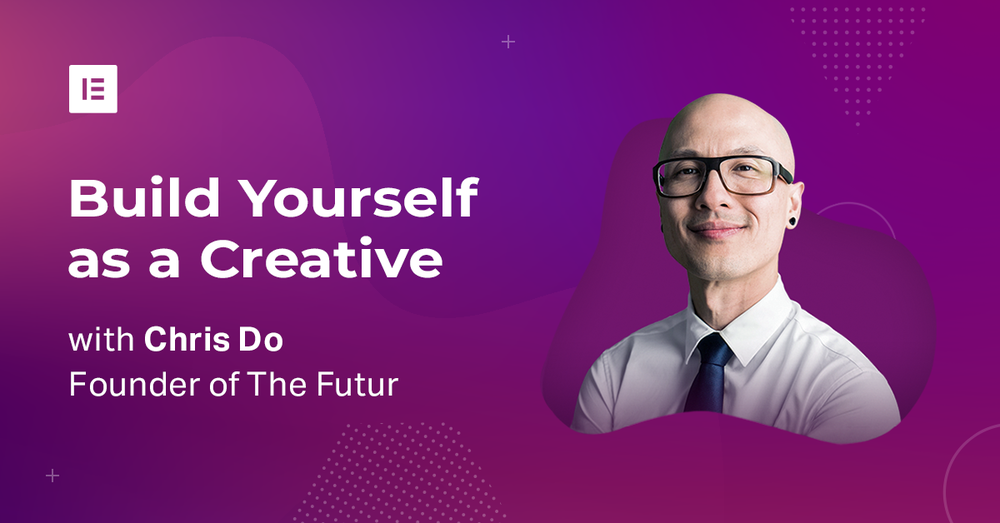Table of Contents
We had the privilege of hosting a webinar with Chris Do, an Emmy award-winning director, designer, strategist, and educator. Chris is the Founder of The Futur — one of the leading online education platforms, where he teaches the business of web design, with almost 800k subscribers on YouTube.
This webinar is part of a new series we started two months ago at Elementor, where we interview a key figure each month, each interview focusing on a topic related to the success of web creators today. In our webinar, our Head of Content Ben Pines and Chris discussed the skills you should focus on as a designer that will build your trust and authority, so that people will be more likely to hire you.
Rebuilding Yourself As A Web Creator
Especially during turbulent Corona times, things are unprecedented and people don’t really know what to expect. We have a lot of extra free time right now because we’re not commuting.
This is why we should focus on things we do have control over, and this is one context where reinventing yourself to find new gigs comes up. This is what we mean by “rebuilding yourself”. You want to adapt your business model and professional approach so that you can succeed not only during the pandemic, but also in the rapidly changing design business landscape. You want to look for the opportunity in the difficult.
Finding Direction During Unpredictable Times
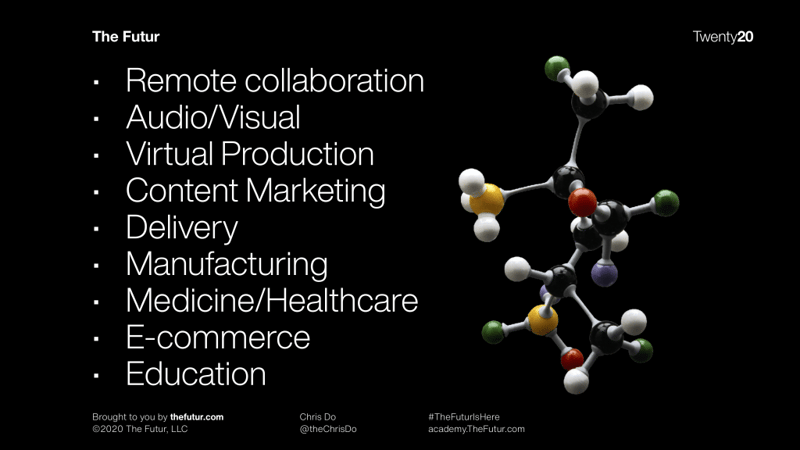
In practice, there are certain industries that have room for adaptation in order to make the service/profession more relevant during Corona, and not seem excessive or worthy of cutting corners. Some would even say these industries are flourishing right now because of their resourcefulness during Corona.
The way this becomes relevant to us as web creators is providing web creation services to professionals in these industries. If they are in business now, odds are they’ll want to build or enhance their existing online presence. Think to yourself: How can you service these people? How can you tap into 1 of these industries?
What you’ll really want to be doing is be as empathetic with these business-types as possible. Think of all the education institutions that have become limited to online resources because they are restricted from in-person education settings. What are their pain points in rerouting all of their materials and lessons to online format? What would they need in a website that would enhance their success?
Of course, education is only one example of industries that are more in demand because of the pandemic and lockdown. You may have noticed that crowd-sourced food deliveries are becoming more and more popular, since more people are ordering groceries and take-out meals to their homes. What would a restaurant looking to provide more online deliveries to customers want on their website? What kind of website would they want?
Rebuilding Yourself: Investing In Personal Development
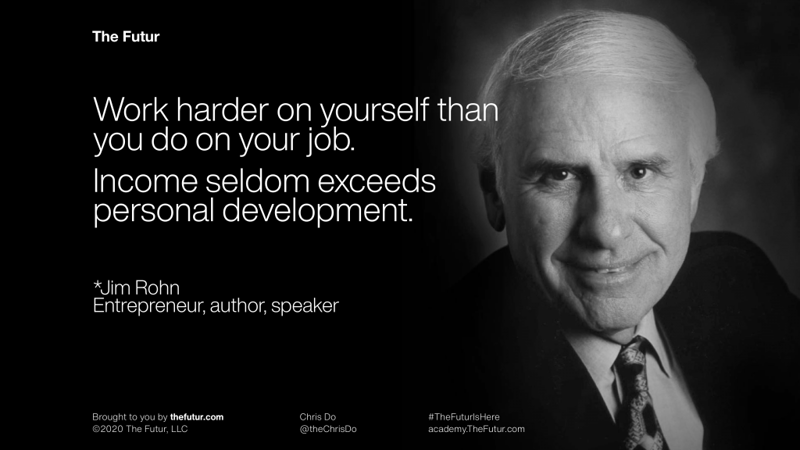
All that being said, if your clients are low on budget because of the situation, trying to get them to hire you can seem insincere. This leads to the next topic: how investing in your own personal development will make your service and your expertise in general more appealing to clients.
The way you can do this well is: not working for clients, rather work for yourself. This statement should be your ‘north star’. This requires a lot of optimism.
OK, now that we’ve taken on this optimistic approach of working on ourselves, how do we actually do it?
Pick a Focus: What's Your Niche?
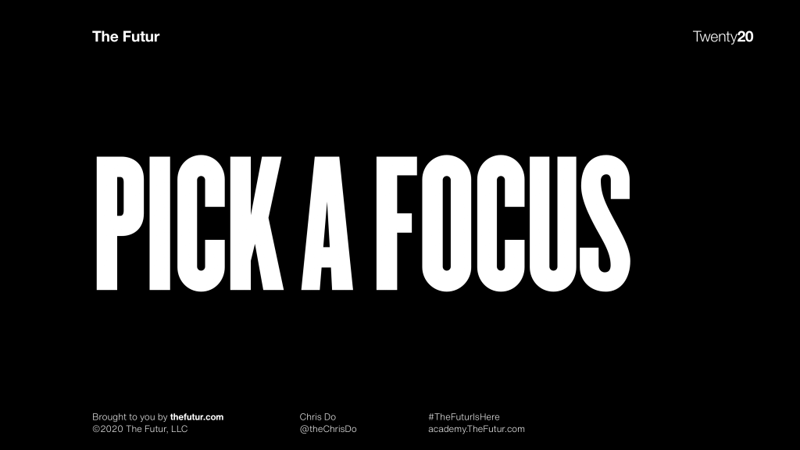
What we mean by pick a focus is once you’ve identified certain skill sets or knowledge areas that you want to master and excel in, enhance the quality of 1 direction rather than spreading yourself too thin. Think about it in terms of quality over quantity. Would you rather be knowledgeable in five areas, or a profound expert in one area?
Chris calls this 5 on 1. Read five of the same books on one subject. Pick a skill you want to improve in, and read five books just about that skill.
This is called syntopical reading. You read to understand and read to compare and analyze so you can have a holistic, formed opinion.
Consume: Quench Your Thirst for Knowledge
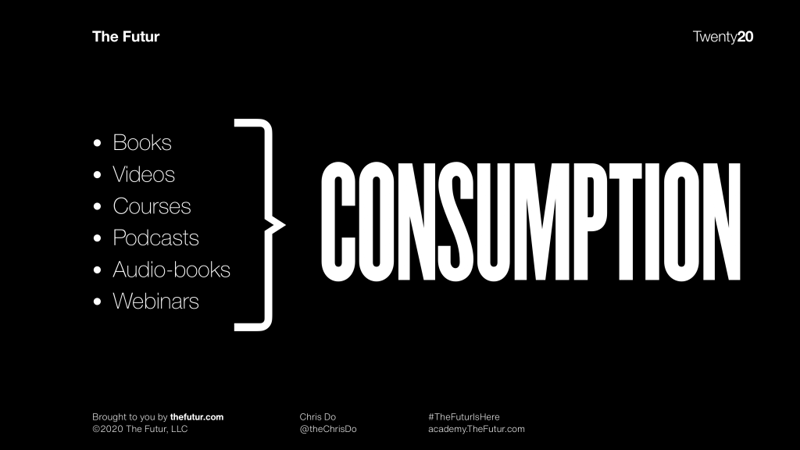
The next step is consumption. The options of what types of content you can consume are endless: books, videos, courses, podcasts and so on.
An interesting book to read about consumption: “How to Read” by Shane Parrish.
Some snippets from the book that help improve our consumption process are:
- Highlight key words, phrases
- Underline comparative ideas (especially between the 5 books you’re reading on the same topic)
- Box words that can be turned into tools
Bearing in mind that our goal is to read five books on one topic, we’ll want to have clear highlights to refer back to throughout our comprehensive consumption process. Boxing words will also be super helpful, and you’ll find out why as you keep reading.
Reflect: Take Time to Think
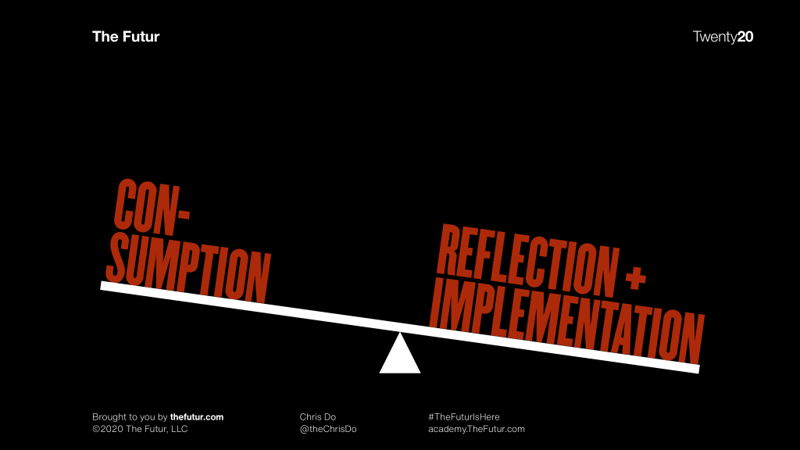
The next step is reflecting on what you consume. Reflecting entails asking yourself questions such as: “What are three biggest ideas that were most useful to me?” Answering this question (among others) and writing down the answers so you can refer to them later on, will help them be easier to implement, the step which we will address next.
Chris actually has an interesting take on this step of the process, which he calls the 2X rule. While consumption is the first stage in the learning process, the 2X rule states that you should spend twice as much time on reflection and implementation as you do on consumption.
This rule doesn’t belittle the value of the consumption stage, rather it allows your brain the time and energy needed to process what you’re consuming. If anything, it emphasizes the value of consumption by making sure what you consume doesn’t lose its effectiveness over time.
Implement: Bring Ideas to Life
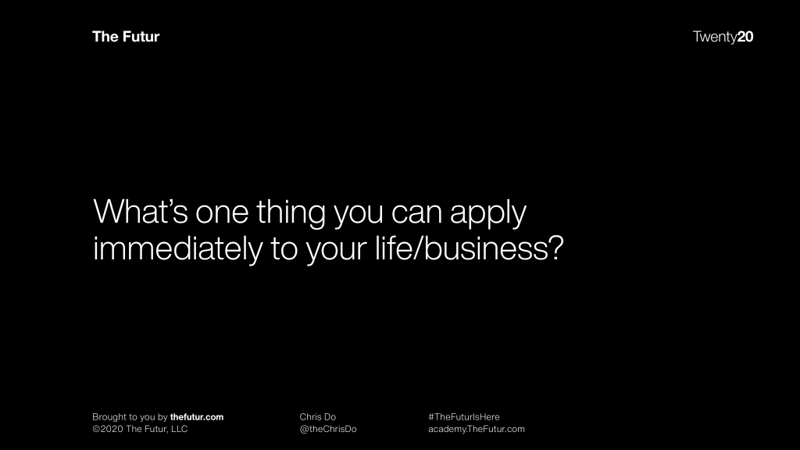
The third step is implementation. This means asking yourself: How can I apply this to my life right away?
Quicker implementation can often mean that what you’ve consumed will resonate with you more, as applying it sooner will crystalize it as an idea and allow you to see it in action over time.
This is also true for how your business or your life will be affected by said implementation. Once you see the results of your implementation, it will become more tangible and be something that comes naturally to you when creating future projects.
Without investing in the implementation stage, Chris points out that your consumption process will retroactively become ‘intellectual entertainment’. This suggests that you’ll have been enlightened by ideas and insights, but you’ll only experience them intellectually, or theoretically, to be more exact. Ultimately, if you find them worthwhile and interesting during the consumption stage, then they surely warrant your continuing to reflect and implement what you’ve learned.
Share: Pay It Forward
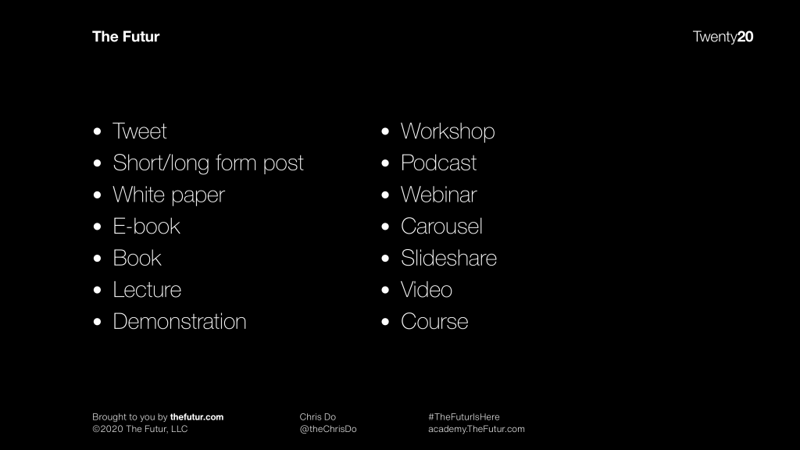
Similar to how there are many content mediums that you can choose from to consume information, so too are there tons of content mediums that you can use to share your knowledge and pay it forward.
Sharing also cements the material you’ve learned in your memory. Once you’ve shared something, let’s say into a blog post, you’ve manifested your knowledge into something tangible.
When you teach others, this requires you to have learned it yourself. As the old saying goes, “the best way to learn is to teach”.
Chris actually recommended a book, “Share Your Work!”, whose subtitle reads: “10 Ways To Share Your Creativity And Get Discovered.” This will delve deeper into the value of building something concrete out of the knowledge you’ve gained, and how it will benefit both you as well as those who consume it.
Build Your Expertise: Make Yourself Known
Building your expertise is one of the most exciting steps in the process of rebuilding yourself (either as a web creator, or as a design professional in general). It’s time to make your mark, and start pumping your creative juices into your knowledge, to create something completely unique.
In the webinar, we explored asking ourselves the following question or prompt:
‘List 20 things that people in your field would consider new and valuable’. At this point, you’re applying your own perspective to your newly-gained knowledge. Once you have this list, you can qualify the importance of each valuable selected, and this qualification process represents the fusion between your creativity and knowledge. You’re officially on the path to becoming a quality expert.
This list process is a great way to demonstrate what you have built thus far, as well as how far you have come since the beginning, since that day long ago when you started to consume.
Jumpstart: Let the Action Begin
Now it’s time to jumpstart your recreation: put it all into action. When your creativity is fresh, you want to jump on the opportunity to create amazing things, as well as recreate yourself.
Even if you’re finding that you don’t have the resources (especially financially) to start creating and generating various types of content, there is still plenty you can do:
- Engage with other groups, communities, leaders, products. You can do this by becoming an unofficial ambassador, answer questions, promote/share, offer to help, etc.
- Curate content such as writing reviews, mention content you read…etc.
- Get on other people’s platforms (podcast, guest post, testimonials, speaking, YouTube, email swap, and so on.)
- Generate original content, tell your story, create an attractive character for yourself
Q&A With the Audience
Now for an even more exciting part from our webinar, the live Q&A from the audience.
Here are some of the insightful questions that our viewers asked Chris:
“What books are must-read for graphic design?”
- Typographic Design: Form and Communication (Rob Carter, Ben Day, Philip B. Meggs)
- A Smile in the Mind (Beryl McAlhone, David Stuart, Greg Quinton, Nick Asbury)
“Can you recommend five books?”
- Delivering Happiness by Tony Hsieh
- Show Your Work! by Austin Kleon
- 7 Strategies for Wealth & Happiness: Power Ideas from America’s Foremost Business Philosopher by Jim Rohn
- Pricing Creativity by Blair Enns
- The Brand Gap by Marty Neumeier
“I would like to hear your thoughts on DIY web-builders/the trend that now anyone can build a website. What space does this leave for web designers? How does it impact your web design fee?”
This is a common issue in many industries/professionals where an emerging technology or service is becoming automated or digitized, creating a reality where the early adopters who originally had competitive advantage because nobody else was in their space, and they devoted a lot of time and energy to create very customized, bespoke things for their clients.
At first, it seems that because of these powerful tools, the prices go down because the tools are eating at the market and it becomes a race to the bottom, but it’s not really.
Where do you want to spend your time and energy? Rebuilding the bricks and cement that you use to construct something? Or do you want to be paid for your problem solving, creativity and energy for your design and copywriting, your energy, etc.
At some point, the tools will become so powerful that anybody can create anything. So it’s less about what you can build, rather why you want to build something and what do you want to say with that thing. This requires a creative human being!
“What’s the best way to pitch a brick and mortar pop up shop to hire me to build a better website?”
With brick and mortar shops, you need to try and empathize with what the store owners’ concerns are in Corona times, which you can do by putting themselves in their shoes.
When you start to do this, you can devise questions about the issue that you’ll ask them, listen to them. Ask them about past experiences, what their goals are, etc. once you gather the information, then you’ll be able to suggest a solution for how they can use websites to replenish their business and meet new windows of opportunity.
“Are you saying that to succeed in the creative industry, it’s super to create a personal brand?”
Creating your own personal brand can help you because it helps differentiate you from everyone else. This is how you win work.
What I like to do is:
- Use everything in your power and resource to win
- Let people know who you are. Put it out there (what you believe in)
Solving puzzles you can improve your dexterity and problem solving skills.
Move Mountains
Ok, so you’re officially a recreated expert. Now what?
We had a great time with Chris at the webinar, and were truly privileged to get his unique and rich perspective on how we can push ourselves beyond our limits as design professionals.
Now that you have a taste of the various resources and frames of mind that Chris shared with us, it’s time to start plugging into them.
Let us know what you find out and how you can share them with us!
Looking for fresh content?
By entering your email, you agree to receive Elementor emails, including marketing emails,
and agree to our Terms & Conditions and Privacy Policy.
